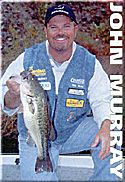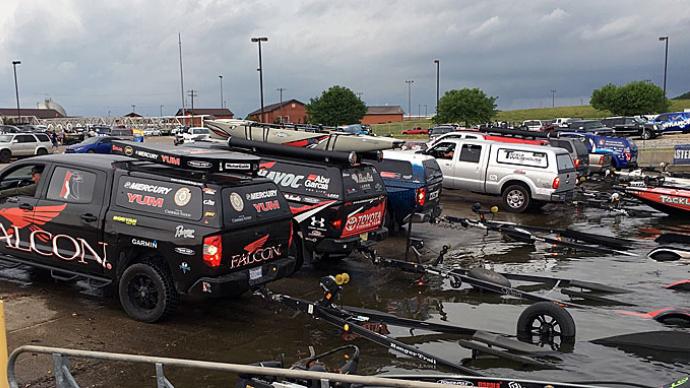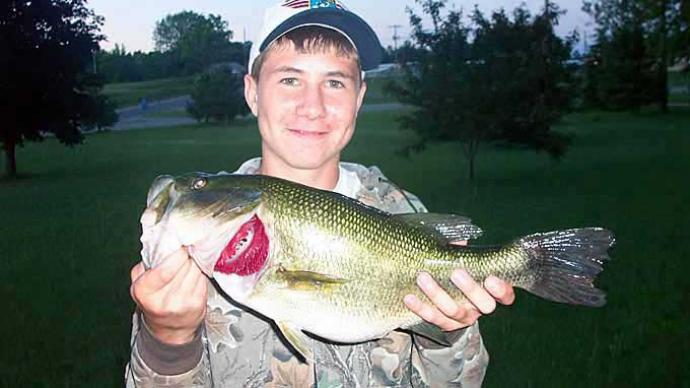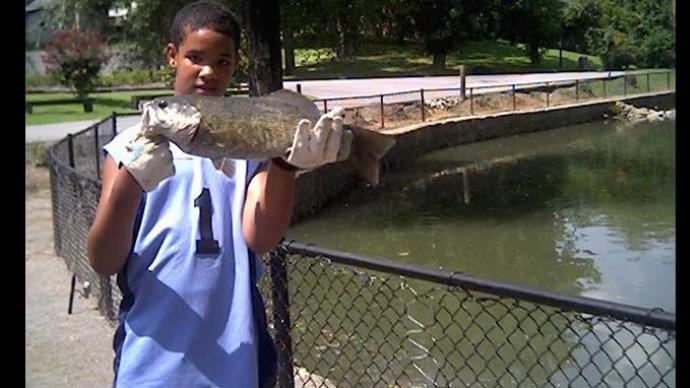
For many bass anglers, boat traffic is a bane to fishing. But it doesn't need to be. Boat traffic can sometimes have a positive effect on fishing. That's right. I said 'positive" and "sometimes." Other times, especially with smallmouths, it can kill the bite. To illustrate this phenomenon, consider my experiences at a recent tournament on Lake Havasu.
It seems Lake Havasu has become one of the most popular lakes for any type of watersport - from fishing to jet skiing to big-boat poker runs. And really, what I found at this tournament was the tale of two very different bass reactions.
I grew up fishing Lake Havasu largemouths, and believe me, boat traffic can be the key to catching fish there. That's why my philosophy on Havasu for years has been: I don't care about what I've caught before 10:00 or 11:00 because, between 11:30 and 1:00, I'll catch most of my good fish. Why? Boat traffic. In usually calm areas, the largemouths start to bite once they've been churned up by recreational boating. So on Havasu, I welcome boat traffic.
Smallmouth Sidetrack
For the tournament, I absolutely should have focused on this phenomenon, but I got sidetracked. Going into the Havasu prefish, I tried to get on the smallmouths instead. I fished mid-week for smallmouths in the main body of the take and found phenomenal smallmouth fishing, especially on main-lake points. It was some of the best fishing I've ever had on Havasu. There seemed to be smallmouths on every point and in every nook. If I threw a reaction bait - like a Rico, spinnerbait, or jerkbait - I had a nice smallmouth come out. I was pretty jazzed and realized I'd never known the extent of this smallmouth population.
The first day of the tournament was a beautifully calm, typical, quiet morning, and I headed for some largemouth water but didn't catch anything. Then, at about 10:30, after striking out on the largemouths, I thought I should get those smallmouths, figuring they'd be biting. So I took off down the lake and fished different areas, and along one 100-yard stretch of the bank where I'd caught 10 or 15 smallmouths during practice, it was the same story. No fish.
That same day, Havasu was hosting the world championship jet-ski finals, and at the same time, two poker runs were happening with the biggest boats I had ever seen.
Looking back, I'm almost sure the boat traffic shut down the smallmouths. People were just camped out on the points with big boats, and the smallmouths had shut down as I'd never seen happen. I did manage to catch a couple of largemouths at the end of the day, but overall, I struggled and had a miserable day. I never caught a smallmouth the whole day and was out of running.
On the second day, I woke up and went back to fishing for largemouths. In areas that were getting churned up by the tremendous boat traffic, sure enough, the largemouths were active. It was fascinating because I faced a situation where one species of black bass reacted differently to the same conditions. I should have known, though, because one of the most significant rules in tournament fishing is never to pattern smallmouths. They move and react too quickly, but I fell into the trap of thinking that I could come around and pattern them. So I was fishing the smallmouths mid-week - entirely different conditions than the busy weekend.
Traffic Turn On
Traffic creates nothing more than a great wave pool, where the wave action muddies up the banks. However, if you don't have a windy day already, and the boat traffic starts around 10:30 or 11:00 and tears up the banks, you can experience significant improvement in largemouth fishing. Maybe food items become dislodged, or the bass prefers hunting under murkier conditions. I can't say for sure. But as an example, there were days I used to fish swimming beaches just to catch largemouths, with people swimming there while I was fishing. It was the murkiest water I could find, and the largemouths loved it.
Smallmouths, though, are such gifted sight feeders. Those that thrive in clear water, I think when the water gets churned up, they simply decide not to eat. I find windy days are generally suitable for smallmouths, but I think the boat traffic and human presence push them down. To go from catching 10 to 20 smallmouths to not catching a single one was an eye-opener and sure taught me to chase largemouths, not smallies when the boats start up.
Reprinted with permission from Bass West Magazine




